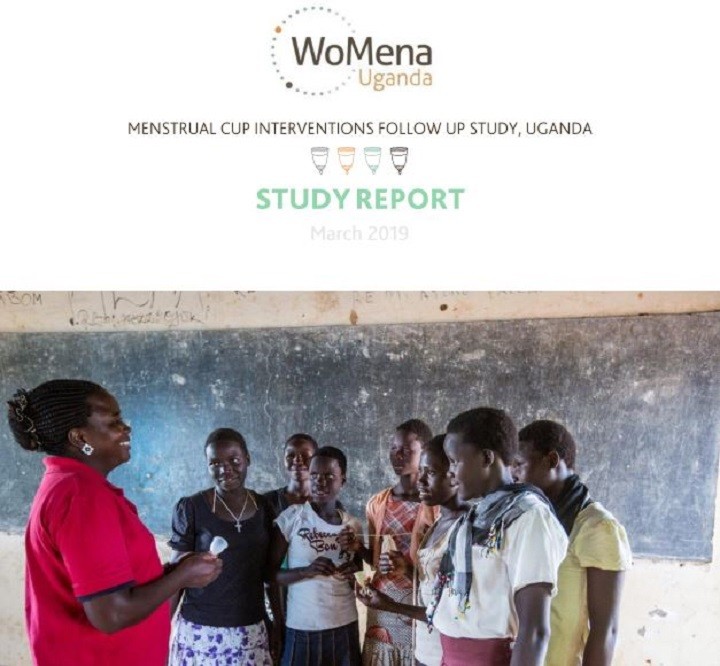
Published in: 2019
Pages: 36
Publisher:
WoMena
Author:
Hytti, L., Simkute, S. and Jahangir, A.
Uploaded by:
Marianne Tellier
Partner profile:
WoMena
2308 Views
40 Downloads
Location of library entry
Globally many women and girls do not have access to appropriate Menstrual Health Management (MHM) methods that are effective, comfortable, convenient, affordable and safe to use and dispose of. Combined with inadequate facilities, social support and knowledge of menstruation as well as prevailing menstrual taboos and stigma, the lack of appropriate MHM methods can impact the physical, social and mental well-being of women and girls. The menstrual cup is increasingly being considered as a sustainable alternative to improve MHM for women and girls, providing a single product that can last for up to ten years. However, to date, only short-term studies on menstrual cup acceptance have been conducted and there is limited evidence on long-term user experiences and individual and communal benefits and challenges, including health and social factors, of using menstrual cups.
This study aimed to capture the long-term experiences of girls and women from three menstrual cup interventions conducted by WoMena in rural settings in Uganda, in Kitgum, Gulu and Katakwi districts between 2012 to 2015. The study employed a mixed methods approach using questionnaires, semi-structured interviews, focus group discussions and observations with girls and women who had received menstrual cups as part of three previous interventions and studies as well as their relatives and teachers. The study was conducted in collaboration with Mbarara University of Science and Technology’s Institute of Interdisciplinary Training & Research.
Results
Results from the study suggest that menstrual cups, for those who continued to use them, were a comfortable and convenient MHM method that supported better body literacy and allowed girls and women to carry out their daily activities without restrictions during their periods.Out of the 117 women and girls surveyed, 82.1%still used the menstrual cup to manage their menstruation. All interviewed menstrual cup recipients narrated following the recommended safe use and care practices (hand washing before insertion and removal, disinfecting the cup between periods and safe storage of the cup).
A qualitative analysis of the data showed that adapting to use of the menstrual cup was considered risky, but also revealed that girls and women made active choices by balancing perceived risks and often felt that the benefits of menstrual cup use outweighed the risks. Over time menstrual cup users developed routines of use, allowing them to take control of their time and activities as they no longer needed to worry about leakages and knew when, where and how to empty their menstrual cup. These established routines also allowed them to keep their “menstrual status” as a secret from others. Knowledge was recognized as a driver of change and, therefore different forms of knowledge (authoritative and self-established) influenced the effectiveness of intervention, reduced the notion of risk and gave menstrual cup users confidence in using the cup. Findings also emphasised the need to maintain access to knowledge post-intervention.
Recommendations
To ensure uptake and continued menstrual cup use, impactful training is essential. Identifying the right support persons and building their capacity by providing them with a menstrual cup to try themselves can also help build a supportive environment. However, as support networks can weaken overtime, alternative modes of support should also be considered. When employing interventions through schools, consideration should be given to support provided by family members and friends outside the school context. Most importantly, as girls and women learn to value their menstrual cup as an asset, they develop their own methods to cope with contextual constraints, for example adapting new ways of disinfecting their cups using available resources. Applying an appreciative approach and consulting girls and women in the initial stages on an intervention on available resources rather than concentrating solely on barriers or constraints could allow for better implementation and improve product uptake.
Bibliographic information
Hytti, L., Simkute, S. and Jahangir, A. (2019). Menstrual Cup Interventions Follow-up Study, Uganda. WoMena
Filter tags
Case studies in other formats English Gender transformative WASH Menstrual Health and Hygiene (MHH) Sub-Saharan Africa














